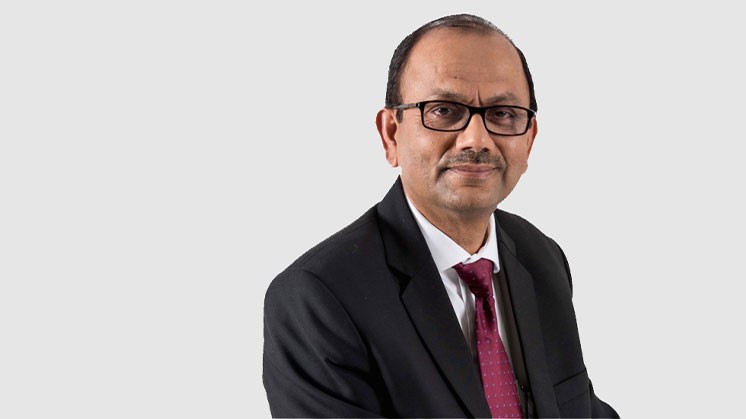CIEL Finance

Dr. Suresh Nanda, Head of International Banking at Bank One: "Mauritius can compete with Dubai'
BUSINESSMAG. Our island is considered as a gateway to Africa. Do you think that investors using our jurisdiction really benefit from our proximity with the African continent?
Mauritius is certainly the preferred jurisdiction in Africa for setting up of structures. Over the last few years, we have seen a clear trend where more and more African entrepreneurs are setting up their company structures in Mauritius. This is happening for two main reasons. Firstly, Mauritius is widely recognized as a strong jurisdiction with an excellent reputation and acknowledged stability. Secondly, there is an element of risk in many other parts of Africa and, whilst businessmen may be familiar with those markets and their specificities, they generally prefer the jurisdictional comfort of Mauritius for their corporate headquarters and structures. From our own experience in dealing with East Africa, Southern Africa and parts of West Africa, Mauritius is the choice jurisdiction across all these geographies.
Furthermore, as their economies grow and mature further, African entrepreneurs are increasingly taking advantage of private equity funding and stock market listing. Consequently, a significant amount of entrepreneurial wealth is being created and realized for company shareholders in Africa. Such entrepreneurs rely on a stable jurisdiction to operate their company structures and manage their personal wealth, and Mauritius has emerged as the preferred destination to many of them.
BUSINESSMAG. Since 5 years, Africa is known as the rising continent. Is it still the case?
I quite agree that Africa is the continent of the future. Already, several countries in Africa have achieved relatively stable democracy and smooth transition of power; and their ranks continue to grow day-by-day.
Africa has had a fair share of home-grown innovations too! M-Pesa, globally heralded as a pioneer in mobile payments, has its roots in Africa. Mobile lending has also seen exponential growth in markets where it was launched in Africa.
If you take a closer look, you will find good parts of Africa growing at 5% and above. Among them, many countries have substantially large and younger populations with the potential to emerge as strong consumer markets in the future. And all this is happening against the backdrop of a fast-expanding African middle-class that is expected to create even more vibrant demand for goods and services in the years ahead. In fact, several African economies have already expanded their production capacities for commodities like steel or cement and manufactured goods such as textiles to meet growing domestic demand and exports to neighbouring states.
I have personally travelled to a number of countries in Africa and interacted with local entrepreneurs. The amazing thing in Africa today is that you can really sense the pulse behind this massive entrepreneurship wave. Many highly qualified young entrepreneurs, with degrees from abroad or from local institutions, are bringing in huge amounts of entrepreneurial energy to meet their respective country’s gaps in manufacturing and services. And local banks and Development Finance Institutions (DFIs) have created an appropriate enabling framework to support the growth of these local entrepreneurs; and they have many success stories to tell.
Furthermore, larger home-grown African business groups have also matured, be it in manufacturing or services, and are able to compete with global players more effectively. Corporates like the Dangote Group are recognized as leaders in their fields and have the capacity to establish continental leadership, thus challenging the domination of larger multinationals.
Another noteworthy trend is that larger African corporates are now manufacturing for the multinationals or developing joint ventures with them in many instances; and raising the bar on quality and management practices in Africa in the process. Concurrently, second and third generation entrepreneurs are also bringing back the best international practices including strong corporate governance into Africa; thus creating significant value for their companies and shareholders.
With the rise of Africa-based Private Equity Funds and international Africa-focused Private Equity Funds, a new class of companies are now emerging in Africa with the sole objective of providing exits to such funds. In fact, there is a unique opportunity for Mauritius in structuring and listing these companies and Mauritian government along with the concerned agencies are striving to develop the segment further. This segment is expected to gain in momentum as more and more African companies get structured and listed in Mauritius.
We are also seeing an interesting trend with regards to takeover of Mauritius OMCs by global companies. This is a good story for Mauritius and a reaffirmation of the business scope for the Mauritius jurisdiction. The benefits of such a trend will be manifold, whether in terms of expanding geographies, capacity building for increasingly complex structures to meet the requirements of a sophisticated clientele or attracting talent in order to provide world-class services and match the other leading financial centres.
BUSINESSMAG. The manufacturing sector in Mauritius is facing huge problems in Mauritius like lack of local labour. Do you think relocation into Africa can be a solution?
It is to be expected that as the local economy continues to mature, there will be a greater structural shift from manufacturing to services industries and Mauritius is already showing clear signs confirming this trend. Concurrently, we see a number of Mauritian-based manufacturing companies setting up their production facilities in other locations to take advantage of labour availability, lower costs and fiscal advantages. This is already happening in the sugar sector and the garment industry.
There is also a growing interest for expansion in tourism and healthcare sectors to other parts of the world (including Africa) on the strength of expertise acquired by the Mauritian operators and in search of new growth opportunities. I am convinced that, in times to come, we will see increasing presence of Mauritian conglomerates across Africa building up value by taking advantage of the larger markets.
BUSINESSMAG. Which sectors channelling through Mauritius investing massively in Africa?
As mentioned earlier, many Mauritian conglomerates are already investing in various sectors in Africa. In addition, there are a number of Mauritius-based private equity investments, which are focused on Africa and have done some interesting deals by enabling the local companies to consolidate and grow by providing capital, operational expertise or both.
I also see good prospects for investing in agriculture and commodity trade. Africa has abundant land and excellent weather conditions and has the opportunity to increase agricultural output in order to meet its own growing demand and become a major food exporter to the world market. It could even offer a viable solution for Mauritius in setting up its own food security programme!
There is also scope for Mauritius to set up trading companies for trade into Africa. Dubai, for instance, is known as a regional centre for trading companies connecting buyers and sellers from all over the world. Mauritius could actually compete with Dubai for trading into Africa on the basis of its proximity but it needs to develop further on the logistics side.
Read Dr. Suresh Nanda’s interview in Business Magazine.




